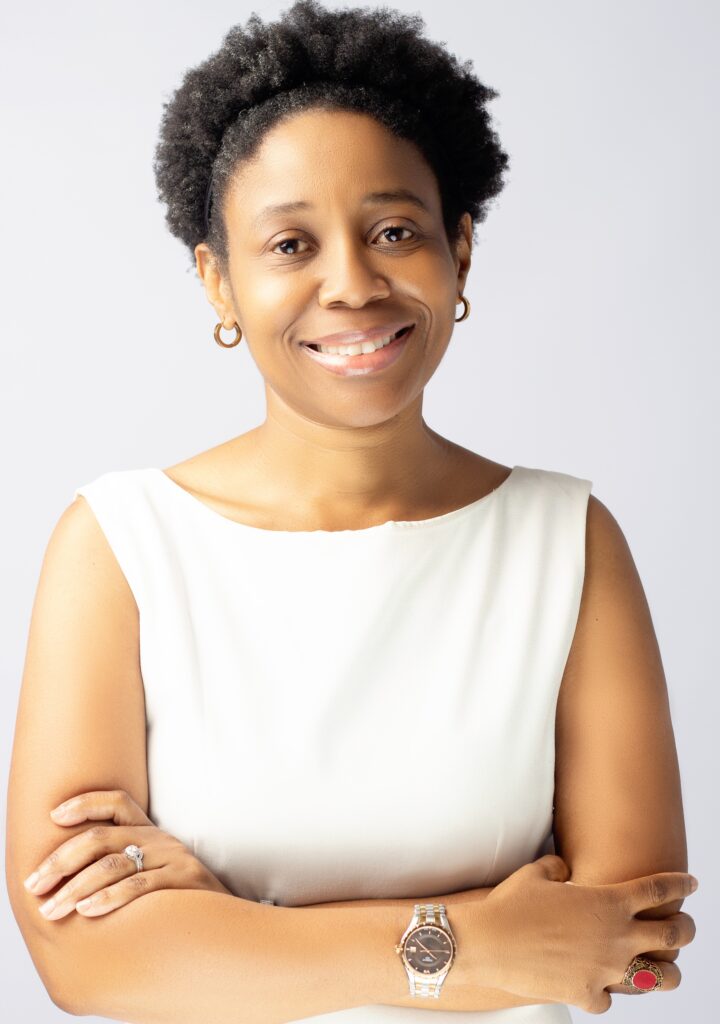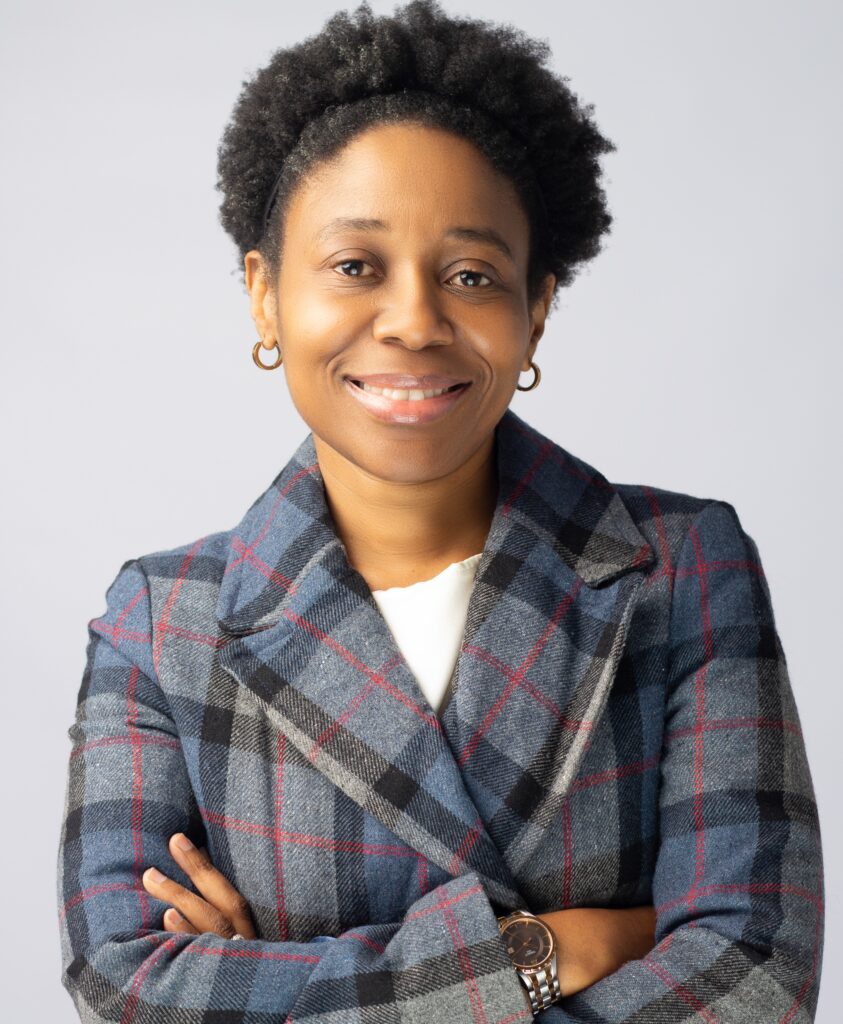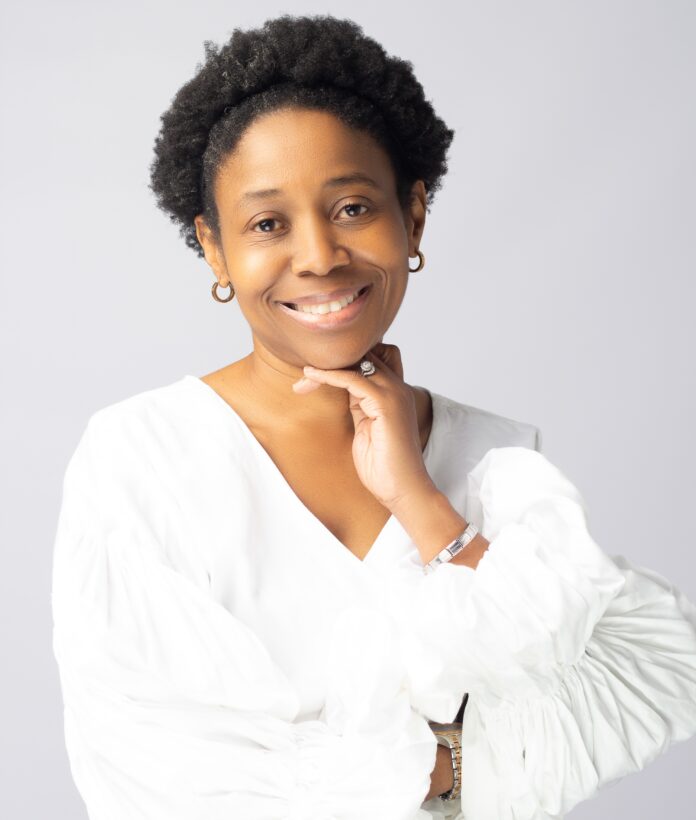- Mpume Ncube-Daka is an internationally accredited executive and leadership coach – with business coaching certification (Leading Women Executive Program) from the Gordon Institute of Business Science (GIBS)
- She holds an international coaching accreditation with ICF (International Coaching Federation), and she’s also a member of Comensa (Coaches & Mentors of South Africa)
- Growing up, Ncube-Daka thought she’d study medicine and become a doctor, but she changed direction and opted for accounting studies
- She holds multiple degrees from the University of KwaZulu-Natal, including a Bachelor’s degree in Economics and Business Finance and an MBA
- She started her career as an assistant financial accountant working for Unilever, before switching careers to take up multiple marketing and business strategy roles with the mobile carrier MTN, telecom giant Ericsson, and Africa’s leading video entertainment firm MultiChoice
- Her corporate track record is nothing short of impressive, having also done some stellar work within the non-profit organisation space as the marketing executive for Mindset Network
- After more than 2 decades of corporate experience, a strong passion for entrepreneurship saw her start her own businesses, including one in the late 2000s in public relations
- In 2021, after working as a coach for more than a decade, the doting married mother of three founded her own coaching practice, About Change Conversations, which focuses on one-on-one and group coaching, as well as facilitation, strategic advisory and creation of bespoke programmes and speaking to inspire employees
- Better still, her contribution to the country’s managerial skill development and research fraternity – notably as an MBA Entrepreneurship supervisor at GIBS six years and counting – will echo throughout South Africa’s academic corridors for generations to come
Proven, qualified executive coaches with innate ability to inspire and bring out the best in people – managers and business leaders – are like gold dust. Not only do they lead by example as leaders in their respective fields, inspiring others to excel and lead purposeful life as the result; they do so with an admirable ease.
That best describes Mpume Ncube-Daka, a high-spirited South African female entrepreneur and leadership coach whose extensive and colourful career path – characterised by multiple career switches as early as her university days – can only serve to motivate those feeling stuck in rut and are unsure about how to get back their mojo. That’s if you’re not thinking of quitting your lackluster job already.
Through her company, About Change Conversations, Ncube-Daka has been leading the charge in business, executive and performance coaching locally and abroad – an interesting career route for someone who started off as a financial accountant while a student with the then University of Natal, before branching out into marketing, business strategy in FMCG and telecommunications industries among others.

She has nearly 30 years of corporate work experience having worked for multinational and JSE-listed organisations like Unilever, Nestlé, MTN, Ericsson and the Multichoice Group, where she occupied the role of a business strategist for several years before striking out on her own to pursue her executive coaching call.
While some people may have the privilege of finding their passion early in their careers, Ncube-Daka is among a rare breed of professionals who had to jump into a number of industries before finding a field she’s truly passionate about. And while the prospects of change can spell fear and feelings of self-doubt in some people, she understood early on that change opens doors to new opportunities for business, career advancement and personal growth.
Now as the founder and CEO of one of South Africa’s thriving coaching practices with a global footprint – and several happy clients locally and overseas (UAE and the US) – she’s using her own life experiences to help others understand and leverage their strengths to achieve success in their professional fields.
Meet The Boss: Q&A with executive coach Mpume Ncube-Daka
Take us through your career journey and professional highlights which led you to your current profession as an executive and leadership coach?
My journey started off in the accounting space, and it wasn’t something that I had planned on doing. It started off with high school where Maths and Physics did not work out when I thought I’d be a doctor, and because I did well in accounting, I thought I’ll be a chartered accountant, and so I enrolled for accounting studies with Natal University. But that too didn’t go according to plan, and I walked out of a lecture in Accounting 2. What then made sense was to major in business finance and economics. That too didn’t play out that way, and I ended up having to work for Unilever as their scholarship holder, and the job that was available at that point in time was in accounting. So that’s where I started off, and I hated it. Though I had gained the right skill (strategic planning and financial management), it wasn’t something I wanted to do for the rest of my life.
The structure of the day-to-day routines as an accountant, the monthly and financial year ends wasn’t the thing that I wanted to do. So I then decided to move into the marketing space, which is the core of my career, having worked for companies like MTN, Ericsson, some NGOs as a consultant in that space. For me that was far more exciting because it got me to tap into my creative, as well as my analytical side of thinking. I then looked at the skills that I had acquired in my career, the business strategy then made more sense, and this is where I worked for Multichoice Group as the executive for products, where my biggest mandate was taking the DStv brand into the masses of South Africa.
While there, I attended an executive program at GIBS and they offered coaching as part of it. The coaching made so much sense for the group that I was in, and personally I appreciated what the coach had done for us because our lives literally changed. We had a space where we could share where we were at, and we were not judged. And it was a very psychologically safe space for us to explore what we wanted to do with our lives – that’s where the coaching element made sense for me. And the following year I decided then to train as a coach, so Multichoice then paid for my coaching at GIBS, which was an amazing gift to get.
After that, I started coaching on the side, and then I did some accreditation. So I’m accredited as a coach with Comensa (Coaches and Mentors of South Africa).

What are some of the motivations that led you to decide to pursue executive coaching as a career?
It was the impact that I experienced when I engaged with our coach at that time (during my training at GIBS). It was about the experience I personally had, and the impact I saw in other people, and basically what coaching can do to your career. Because it actually challenges your mindset, it gives you the space where you can reflect on where you are and want to go. As people and professionals, we don’t actually do that; reflect on where we really want to see ourselves, and even asking ourselves the important question of ‘why was I really brought into this world? – but because I experienced that, that’s what I wanted to do for others.
0ne of your main duties as an executive leadership coach is to help corporates with their mentorship programs and other organisations around new hires, which touch on work readiness – this at the time when youth unemployment in the country is incredibly high (over 45% of young people in SA are unemployed, StatsSA). Why is this important to you?
One of the things that I’m seeing and hearing a lot about is corporate companies complaining that they’re hiring and getting people in, but they are (graduates) not work ready? And then I go like; how are they going to be work ready because they’re coming out of university. And what are you as corporates doing to actually make sure that you’re putting in programs that will allow your interns and graduates to start understanding what work is about. These would be programs that touch on work ethics, business objectives, and what value they can contribute in the business. It also takes you on a self-awareness journey, how can you have crucial conversations in the workplace and be able to receive and give feedback among other things. It’s all those important things nobody teaches you about, but are things expected from you. It’s very crucial for corporates to invest on how they get their interns and graduates work ready as they’re entering the workplace and help them as they navigate their journey to the next level.
It’s something that I appreciate as a professional because I went through that in the early days of my career with Unilever, they used to have very good leadership programs. As graduates, we were expected to go through it as part of your career building journey, and that helped us to then immerse ourselves in the corporate culture and understand what was expected from us.
Looking at some of the strides you’ve made as a business, as well as the several awards you’ve won along the way, what’s your advice to young people looking to follow in your footsteps and get into the executive and leadership coaching space, but don’t know where to start?
I believe that one needs to be qualified in order to work as an executive coach because there are nuances that you need to understand, and one of that is that you’re not a psychologist. You’re not a therapist. So if you’ve gone through a good certification, you’ll understand that when you have clients that have got some trauma or are dealing with mental health issues, you are not the one to help them with that. As a coaching professional, you’ll allow them to then seek therapy, because coaching will not do that for them. But when you’re not trained you are not going to know the difference, and you are going to start tapping into spaces way you shouldn’t be, and end up destroying people’s lives. That for me is a big concern.
Another big thing is that you’ll find that the spread is so broad – be it health or wellness coaches and those in career and leadership fields. Therefore you need to be clear about the niche that excites you, and believe you make a good contribution in. Because ideally you can coach on anything, but when you specialise in a certain niche it just gives you the edge and credibility.
Lastly, I think you also need to be passionate about it – because if your why is not clear, then you’re doing it for the wrong reasons. When you’re impacting people’s lives, you need to know that you can either break or make them. It needs to make sense for you that this is really something that you are going to be doing, so that you can have an impact in people’s life in a big way.
What sets you apart as a business?
Firstly, as someone who has spent a long time in corporate, as well as having been an entrepreneur on-and-off myself, I can proudly say I understand how the business works. I’ve also spent a huge part of my career in business strategy, which alone I believe gives me credibility. And for six years now I’ve also been a supervisor for MBA entrepreneurs at GIBS, so I not only know and understand all the important stuff that make the business work, but I also bring a different thinking into what needs to be done to thrive.
There’s also an element of unique, personal experiences that I bring into the picture. For an example, when I’m working with someone who wants to change careers and they’re doubting if whether it’s possible, the first thing that I say to them is ‘look at me, I’m your example of having done it, and learned lessons along the way as I move’. So the bulk of the stuff that I’m doing isn’t only because I’m passionate about it, I’ve got my own experiences. And often times when I ask someone why did they choose me as their coach, they often say ‘they can relate to my life experiences’, one being that I am a black female who started off as a graduate and then left the corporate as an executive. The fact that I come from the rural KwaZulu-Natal makes me relatable, and people can see that these things are truly doable. You can take yourself to global stages, and do anything you set your mind to no matter where you come from. That kind of inspires people to say ‘ok if it’s possible for her, I think I can also be that person’.

Unpack for us, some of the hurdles you’ve had to learn to navigate in order to thrive and be where you’re now?
Firstly, being a black female professional, you need to show up differently and work twice as hard if not more. I got told a lot that ‘Mpume you’re not visible enough’, and I go ‘what the hell is that?” I’m here doing what I need, the only way I know how. Also, you may find yourself in spaces where people just decide they don’t want to hear your voice. So one of the tricks would be to bulldoze those rooms where I’m not easily welcomed. And while at it, I make sure I establish relationships that will allow me to actually be there, and feel as well that I belong in those moments – because sometimes we feel as though we don’t, and that then starts showing up in the way we behave, and maybe not even showing up for ourselves at well.
And for me, one of the biggest challenges have always been to say ‘I am capable’ even when I have a moment of doubting myself, telling myself that ‘I’ll figure it out’…’that I’m going to ask when I don’t know’ so I can elevate myself. And that’s where the importance of embracing being mentored comes in. That was among the first things I had to learn to do as I was changing careers, because I was coming in into not-so-familiar spaces and people knew me as somebody who spent a lot of time in corporate. Now as a leadership coach, that meant I had to network and create partnerships and collaborate with other people and professionals that will allow me to grow and thrive.
You know there’s an idiom that say ‘if you want to move far you can’t be walking by yourself’. I can comfortably say ‘with the kind of work that I’m doing now, if I was not open to collaborating with other people and understanding that the pie is big for all of us, I wouldn’t have been so successful’.
In that case, what are some notable names or companies you have collaborated with in the coaching space?
At the moment I’m working with the government of Abu Dhabi, and I’m subcontracted by a company called BTS, which is a global company. That for me is among the most amazing experiences of my coaching business. Amazing from being able to see what other countries are doing for their citizens, as well as from a cultural experience. We can learn a lot from the government of Abu Dhabi if we’re looking to deliver differently for our citizens as a country, and become a happy nation. (in 2016 the UAE embarked on a mission to prioritise the well-being of their citizens, leading the way by appointing the Minister of Happiness & Wellbeing)
I also do a lot of work with my former employer Multichoice, meaning I get to work not only in a space that I fully understand, but also be a catalyst in helping propel their employees further as they’re growing in their careers.
You were recently bestowed with the the prestigious ‘Mentor and Coach Winner’ of the Woman of Stature Awards South Africa 2024. What does a professional recognition like this mean to you?
Being named Mentor and Coach Winner of the Woman of Stature Awards South Africa hasn’t quite sunk in. However, it’s a big honour, particularly given how diverse and competitive the coaching profession is. For me, this recognition is not just about the acknowledgement of the work I do, but essentially about elevating the importance of coaching and mentoring.
My wish in life is that a whole lot of us can be able to engage a coach, and equally important be in a place where as a sector, engaging a life coach doesn’t have to be an expensive exercise. I also want people to understand that having a mentor or coach in their life is highly important because those are the people with the acquired skill and right tools to help them navigate their lives and what they want to achieve.
In closing, what are the long term goals for your coaching practice, About Change Conversations?
When I founded About Change Conversations more than 3 years ago (2021), my vision was to help individuals get to appreciate the potential they’ve got inside them, and embrace the talents and gifts that God has given them.
The principle of coaching says ‘we all have answers within ourselves’ but sadly as people, we find ourselves really just cruising in life sometimes, and we’re not bringing our whole self into our own lives because we don’t know how to do it, something which I can very much relate to even as a coach. Because I myself benefited greatly from enrolling in an executive coaching program with GIBS (while working as product executive for Multichoice), a decision which brought me to ultimately leading a fulfilling life as an entrepreneur and global leadership coach after switching several careers in the past. That’s what I want to do for others. For me it’s about how I can impact my clients’ lives to a point where they can really live fulfilled and successful lives according to their individual definition – not according to someone’s else.
Furthermore, my dream is to see About Change Conversations make a huge impact within the African continent in terms of providing coaching programs that can make an impact in facilitating conversations in the workplace that can bring about real change, as well as come up with a series of interactive education and career roadshows in rural schools and previously disadvantaged communities.
Sometimes we get our people to attend these training programs, but we never take a step back to say ‘okay, someone has gone through this and that training, but what is the impact back into the business and their respective communities’. They still come back and be expected to operate the same way. So for me, it’s ideally about allowing those people that go through these trainings with me to go back and elevate.


